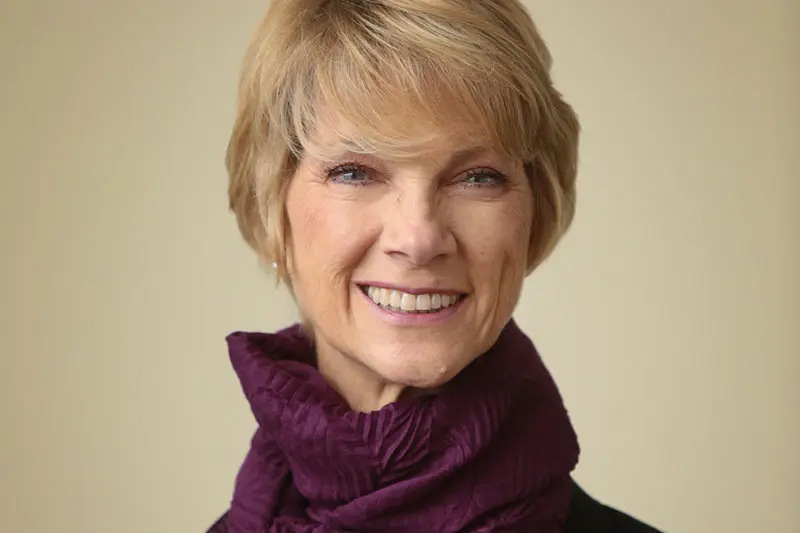Taylor University’s Interim President Dr. Paige Comstock Cunningham joined presidents from eight other Indiana colleges and universities and Indiana state, city, and civic leaders for a virtual summit, the goal of which was listening, discussion, and better understanding relative to the advancement of racial justice and transformation.
The nine presidents issued the following joint statement:
“We lament the brutal deaths of innocent African-American men and women that have created such pain, anger and frustration for our communities. We grieve over the violence and division that threaten to tear apart the social fabric of our communities and our nation. As persons of faith, and leaders of Christ-centered universities, we wish to come together to do all we can do to promote the well-being of the people and communities we serve.”
The two-hour conversation was attended by 60 north-central Indiana leaders, including State Senators Andy Zay and Travis Holdman, representatives of Congressman Jim Banks and Congresswoman Susan Brooks, mayors, sheriffs, police chiefs, NAACP leaders, academic and other city and civic leaders.
The presidents included:
- Paige Comstock Cunningham, Taylor University
- John Pistole, Anderson University
- Sherilyn Emberton, Huntington University
- William Katip, Grace College and Seminary
- Gregg Chenoweth, Bethel University
- David McFadden, Manchester University
- Karl Einolf, Indiana Tech
- Rebecca Stoltzfus, Goshen College
- David Wright, Indiana Wesleyan University
During the meeting, Cunningham introduced a four-member panel of religious and academic leaders who spoke about the realities of living as African American professionals in a racially unjust world. Panelists shared insights about experiences of exclusion, concerns about personal and family safety, and the need to address difficult issues through transformational conversations. They shared evidences in their communities of progress toward the goal of inclusion for all.
Pistole introduced the second panel, which consisted of law enforcement officials from the FBI and from Madison County. Paul Keenan, Special Agent in Charge of the Indiana Field Office of the FBI, provided clarity on the FBI’s mandate to address civil rights issues and provided data as to the number of hate crimes and color of law cases being reviewed at this present time. Local law enforcement leaders addressed the importance of providing better training for officers and accountability for supervisors, as well as the importance of continuing to support local law enforcement efforts as they work toward education and reform. There were specific calls for empowered review boards and for meaningful reform of some police practices.
As a part of the panel on law enforcement reform, Mr. James Burgess, President of the Anderson-Madison NAACP, provided insights into the ways in which the NAACP and activist organizations are engaged in discussions of appropriate law enforcement reforms.
Katip of Grace College facilitated a conversation with individuals in specific communities where significant change has taken place. Iric Headley of Fort Wayne United shared the results that have been achieved in Fort Wayne over the last four years through intentional conversations, building relationships through small group meetings, community forums and racial dialogues. Through these proactive efforts of the city administration, Fort Wayne has seen a 66% decrease in aggravated assaults, 55% decrease in hand-to-fist altercations, 33% decrease in burglaries, 28% decrease in auto theft, and 63% decrease in shootings which speaks to the power of dialogue, listening, building relationships and education.
Stoltzfus of Goshen College invited Goshen Mayor Jeremy Stutsman to share about a recent “no-tolerance for racism” resolution passed by their city. As recently as the 1970s, Goshen was known as a “sundown city”. The city leaders are proactively working to eradicate racism from their midst. They serve as an example for other cities in taking an official anti-racism stance.
“I was moved by the genuineness of the other college presidents and community leaders as we joined to further the cause of justice for every American, especially in north-central Indiana, and better facilitate the needs of each of our students, whose families who have trusted Taylor University to faithfully steward their potential,” said Cunningham.
List of Panelists:
Panel #1
- Joanne Barnes, Dean of the Graduate School and Professor with the Department of Leadership Studies, Indiana Wesleyan University
- Gregory Dyson, Vice President for Intercultural Leadership and Church Relations, Taylor University
- Michael Thigpen, Director of Cultural Resource Center, Anderson University
- Arthur Wilson, Dean of Spiritual Life/Campus Pastor, Huntington University
Panel #2
- Paul Keenan, FBI, Special Agent in charge of the Field Office for Indianapolis, IN
- Rodney Cummings, Madison County Prosecutor
- Scott Mellinger, Madison County Sheriff
- James Burgess, Anderson-Madison NAACP President
Panel #3
- Iric Headley, Fort Wayne United Director
- Goshen Mayor Jeremy Stutsman
- Gilberto Perez, Jr., Dean of Students, Goshen College and City Council Member for City of Goshen

